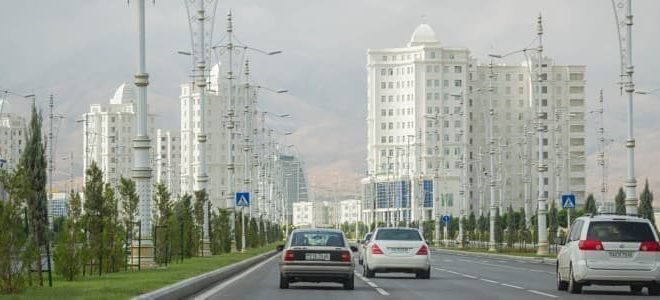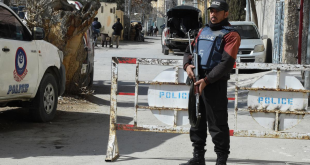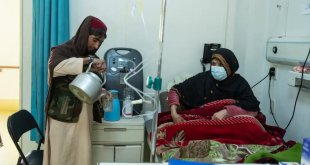AT News
KABUL – In the backdrop of escalating tensions in the region, Turkmenistan’s ambitious Trans-Afghanistan Pipeline (TAPI) project encounters hurdles, primarily due to the Taliban’s control in Afghanistan, creating impediments in securing global financial support.
Ashgabat, the capital of Turkmenistan, is actively engaging in discussions with the United States to explore possibilities of easing sanctions on Afghanistan. This strategic move is seen as an effort to advance the TAPI pipeline project despite the challenges posed by the current geopolitical situation.
Faced with these obstacles, Turkmenistan is also exploring alternative energy export routes and partnerships. Among these initiatives is a gas swap deal with Iraq, demonstrated by a recent meeting between representatives from state-owned Turkmengaz and officials from Iraq in Ashgabat. The meeting resulted in a protocol outlining commercial terms for the delivery of 9 billion cubic meters of gas annually over five years, facilitated by a swap arrangement with Iran. The exact terms of the agreement have not been made public.
The return of the Taliban to power in Kabul initially seemed detrimental to Turkmenistan’s aspirations for the TAPI pipeline. The prospect of securing credit from major global financial institutions appeared remote with an internationally proscribed militant group in control. However, reports indicate that Ashgabat is working behind the scenes to change this narrative.
Muhammetmyrat Amanov, the head of the TAPI consortium based in Turkmenistan, revealed in discussions with Pakistani officials that the country is in talks with the United States to explore avenues for easing sanctions on Afghanistan. This development introduces a complex situation for Washington and the broader West, with potential implications for the strategically significant Central Asia region, currently influenced by Russia and China.
Meanwhile, Russia has also expressed interest in Turkmenistan’s energy resources. Russian President Vladimir Putin, in a recent interview, suggested the possibility of Turkmenistan getting involved in a gas supply arrangement with Kazakhstan. This comes as Russia actively seeks to expand its influence in the Central Asia-Center pipeline system, recently reversing the traditional direction of gas flow to Uzbekistan via Kazakhstan.
As Turkmenistan navigates these intricate geopolitical dynamics, regional players, including Pakistan, express eagerness to move beyond discussions and focus on practicalities. The evolving situation underscores the complex interplay of interests and alliances in the pursuit of energy projects in the region.
 Afghanistan Times
Afghanistan Times




